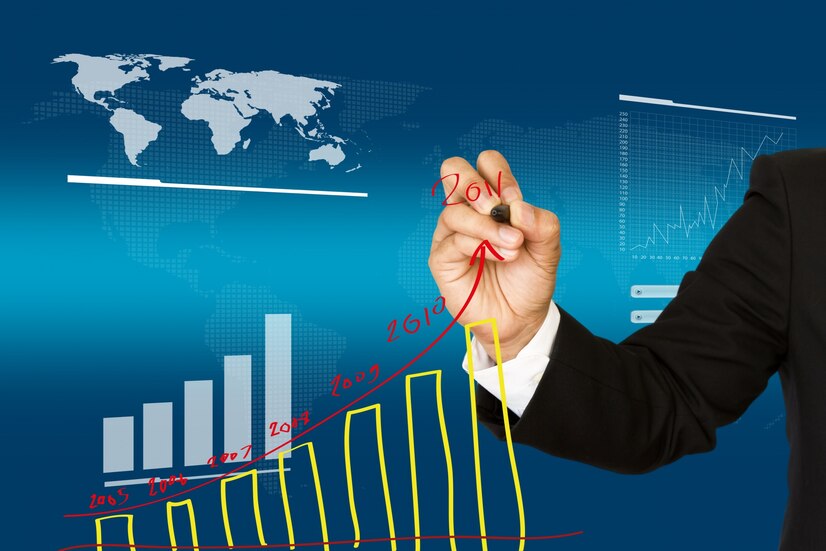The Role Of Global Trading In Today’S Economy
5 Mins Read
Published on: 18 November 2023
Last Updated on: 11 November 2024

toc impalement
In the intricate tapestry of the modern economy, the influence of global trading is profound. At the same time, it connects nations and shapes the destiny of businesses and consumers alike. As the threads of international trade weave through diverse markets, currencies, and regulatory frameworks, unraveling the complexities becomes essential.
This journey aims to unravel the complex web that binds our global economic landscape. Again, It offers insights into the transformative power and enduring impact of global trading in today’s interconnected world.
Understanding Global Trading
Global trading, an intricate dance entangled with international trade, forms a complex exchange system. It orchestrates the seamless flow of goods, services, and capital across the borders of diverse nations.
At its core, this dynamic phenomenon thrives within interconnected markets. There, the ebb and flow of supply and demand transcend geographical confines. The dance partners, represented by diverse currencies, add a layer of intricacy, fluctuating in response to market dynamics.
Amidst this complex ballet, regulatory frameworks act as silent choreographers, shaping the movements and interactions of the players. Businesses and policymakers find themselves as active participants, necessitating a profound understanding of these interplaying elements. Leveraging platforms like MT5 becomes crucial in navigating the complexities. The platform provides real-time insights and tools for informed decision-making in the ever-evolving global trading landscape.
It goes beyond a mere academic exercise, it becomes a strategic imperative. This understanding serves as a compass, guiding stakeholders through the intricate steps and potential traps within the global economic arena.
For businesses, it means charting a course toward growth, identifying opportunities, and mitigating risks. Policymakers armed with this knowledge can craft effective regulations. Again, they foster economic prosperity while maintaining stability in an ever-evolving global landscape. In essence, this comprehension acts as the North Star, providing direction in the vast and complex realm of global trading.
Advantages Of Global Trading
Engaging in global trade offers a transformative spectrum of advantages that resonate across businesses and consumers alike. Businesses, when venturing into international markets, open doors to a broader consumer base, a strategic move that not only facilitates economies of scale but also acts as a catalyst for innovation.This expanded market reach enables companies to diversify their offerings, fostering creativity and adaptability. Simultaneously, consumers reap the rewards of this global exchange, enjoying a rich array of products and services sourced from around the world, often at competitive prices.
The interplay of supply and demand on a global scale becomes a driving force behind economic growth, transcending geographical boundaries. This dynamic exchange creates a symbiotic relationship wherein businesses thrive by meeting diverse consumer needs, and consumers, in turn, experience enhanced choices and access.
The intertwining benefits of global trade contribute to the overall prosperity of nations, fostering a climate of innovation, economic development, and shared opportunities.
Challenges In Global Trading
Trade barriers, a formidable challenge within the global trading landscape, manifest in various forms, including tariffs and intricate regulatory frameworks.
These barriers pose significant obstacles, impeding the fluid flow of goods and services across borders. Navigating this complex terrain requires strategic acumen from businesses, emphasizing the need for meticulous planning and compliance. Geopolitical tensions further inject an element of unpredictability, shaping the dynamics of international trade. The ever-evolving political landscape introduces uncertainties that can disrupt established trade relationships and necessitate agile adaptation strategies.
Fluctuations in currency exchange rates, another facet of the intricate global trade puzzle, present financial risks. Businesses operating in multiple currencies must employ astute risk management strategies to mitigate potential economic impacts stemming from currency volatility.
As businesses expand into global markets, cultural differences and compliance with diverse regulatory landscapes emerge as critical considerations. Understanding and respecting cultural nuances become paramount, fostering positive interactions, while navigating through varying regulatory requirements demands a careful and informed approach. In essence, overcoming these challenges requires a combination of adaptability, strategic foresight, and a deep understanding of the intricate web that is global trade.
Global Trading And Sustainable Development
The transformative potential of global trading in fostering sustainable development often resides in the shadows, waiting to be fully recognized. When approached responsibly, global trade becomes a formidable force for positive change. Ethical business practices within the global trade framework can elevate communities out of poverty, nurture social equity, and champion environmental sustainability.
Responsible global trading aligns economic growth with ethical considerations, creating a harmonious synergy between profit motives and social responsibility. By adhering to ethical standards, businesses contribute to a sustainable global trading landscape that goes beyond financial gains, addressing societal needs and environmental concerns.
This harmonious coexistence between economic prosperity and ethical practices represents a crucial cornerstone for building a future where global trade is not only lucrative but also a driving force for positive social and environmental impact.
Future Trends In Global Trading
As we gaze into the future, the course of global trading is undergoing a profound transformation, propelled by the winds of technological innovation and geopolitical shifts. The advent of e-commerce has become a formidable game-changer, providing businesses with new avenues to explore international markets and revolutionizing traditional trade practices. Concurrently, the integration of blockchain technology is infusing transparency and efficiency into global transactions, redefining the very foundations of international trade.
The utilization of artificial intelligence is another transformative force, empowering businesses with data-driven insights, automation, and enhanced decision-making capabilities. These technological advancements not only streamline processes but also open new possibilities for global collaborations.
Evolving consumer preferences and an increasing emphasis on environmental consciousness are steering global trading trends toward sustainability and ethical practices. Staying abreast of these monumental shifts is imperative for businesses aiming not only to survive but to thrive in the ever-evolving global economic landscape. Adaptability and a proactive approach to these emerging trends will be key in ensuring businesses remain agile and responsive to the challenges and opportunities that lie ahead.
For The End
Global trading is a profound force, intricately connecting nations, businesses, and consumers. This exploration navigates the complexities of international trade, unraveling its dance through diverse markets, currencies, and regulatory frameworks.
From the transformative advantages and formidable challenges to its potential for sustainable development, global trading is a dynamic force with enduring impacts. Looking to the future, technological innovations reshape its trajectory, demanding adaptability.
This understanding serves as a guiding compass for businesses and policymakers, ensuring a harmonious synergy between economic prosperity, ethical considerations, and the evolving landscape of global trading.
Read Also:


















Comments Are Closed For This Article